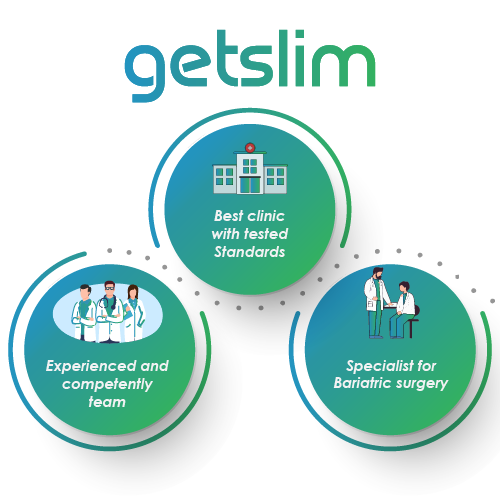Introduction: Pregnancy After Bariatric Surgery — What You Need to Know
Pregnancy After Bariatric Surgery: Bariatric surgery has proven to be an effective solution for individuals struggling with severe obesity, offering significant weight loss and improvement in obesity-related health conditions. For many women, the decision to undergo bariatric surgery is also influenced by the desire to improve fertility and have a healthier pregnancy. However, pregnancy after bariatric surgery requires careful planning and close medical supervision to ensure the health and safety of both the mother and the baby. This comprehensive guide covers everything you need to know about pregnancy after bariatric surgery, including timing, nutritional considerations, potential risks, and best practices for a healthy pregnancy.
Timing of Pregnancy After Bariatric Surgery
Optimal Timing
Healthcare professionals generally recommend waiting at least 12 to 18 months after bariatric surgery before attempting to conceive. This waiting period allows the body to stabilize after significant weight loss and ensures that the mother is nutritionally prepared for pregnancy. During the first year post-surgery, rapid weight loss and changes in nutritional intake can pose risks to fetal development.
Reasons for Waiting
- Nutritional Stability: The body needs time to adjust to the new dietary restrictions and ensure adequate nutrient absorption.
- Weight Stabilization : Waiting until weight loss stabilizes reduces the risk of pregnancy complications associated with rapid weight changes.
- Health Optimization: This period allows for the improvement or resolution of obesity-related conditions, providing a healthier environment for pregnancy.
Nutritional Considerations
Importance of Nutrition
Proper nutrition is crucial for a healthy pregnancy, and this becomes even more important after bariatric surgery. Nutritional deficiencies can affect both the mother and the developing baby, leading to complications such as low birth weight, preterm birth, and developmental issues.
Key Nutrients
- Protein: Essential for fetal growth and development. Post-surgery, it is essential to ensure adequate protein intake to support both maternal and fetal needs.
- Folic Acid: Vital for preventing neural tube defects. Women should take a daily supplement containing at least 400–800 micrograms of folic acid.
- Iron: Prevents anemia and supports fetal development. Iron supplements are often necessary after bariatric surgery.
- Calcium and Vitamin D: Important for bone health. Supplementation may be required to ensure adequate levels.
- Vitamin B12: Supports nerve function and the production of red blood cells. Bariatric surgery can lead to deficiencies, so regular monitoring and supplementation are crucial.
- Multivitamins: Taking a comprehensive prenatal multivitamin can help cover any nutritional gaps.
Monitoring and Supplementation
Regular blood tests are essential to monitor nutrient levels and adjust supplements as needed. Close collaboration with a healthcare provider, including a bariatric specialist and an obstetrician, is necessary to ensure optimal nutritional status throughout pregnancy.
Potential Risks and Complications
Common Concerns
While many women have successful pregnancies after bariatric surgery, there are potential risks and complications that need to be considered:
- Nutritional Deficiencies: As mentioned, deficiencies in key nutrients can impact both maternal and fetal health.
- Gestational Diabetes: While bariatric surgery reduces the risk of gestational diabetes, it can still occur, and close monitoring is necessary.
- Preterm Birth: There is a slightly increased risk of preterm birth in women who have undergone bariatric surgery.
- Small for Gestational Age (SGA): Babies may be at risk of being born smaller than average, which can lead to health complications.
Importance of Medical Supervision
Regular prenatal visits and close monitoring by healthcare providers are essential to manage and mitigate these risks. This includes frequent ultrasounds, blood tests, and nutritional assessments.
Best Practices for a Healthy Pregnancy
Preconception Counseling
Before attempting to conceive, it is recommended to undergo preconception counseling with a bariatric specialist and an obstetrician. This helps assess readiness for pregnancy and address any potential issues.
Healthy Eating and Hydration
Maintaining a balanced diet rich in essential nutrients is crucial. Post-surgery, the ability to eat large quantities is reduced, so focusing on nutrient-dense foods is important. Adequate hydration is also key to support overall health and pregnancy needs.
Regular Physical Activity
Engaging in regular, moderate exercise can help maintain a healthy weight, improve mood, and support overall well-being. Activities such as walking, swimming, and prenatal yoga are generally safe and beneficial.
Stress Management
Managing stress is significant for a healthy pregnancy. Techniques such as mindfulness, meditation, and deep breathing exercises can help reduce stress levels.
Support System
Having a strong support system, including family, friends, and healthcare providers, can provide emotional support and practical assistance throughout the pregnancy.
Postpartum Considerations
Nutritional Needs
Postpartum nutritional needs to remain high, especially for breastfeeding mothers. Continuing with the prescribed supplements and maintaining a healthy diet is crucial.
Weight Management
Managing weight postpartum is significant for overall health. Regular follow-up with a healthcare provider can help maintain a healthy weight and prevent weight regain.
Emotional Well-being
The postpartum period can be emotionally challenging. Seeking support from healthcare providers, support groups, or a therapist can help address any mental health concerns.
Conclusion: Pregnancy After Bariatric Surgery
Pregnancy After Bariatric Surgery: Pregnancy after bariatric surgery like Gastric sleeve in Turkey or Mini-Gastric-Bypass in Turkey is entirely possible and can result in healthy outcomes for both mother and baby. However, it requires careful planning, close medical supervision, and a commitment to maintaining optimal nutrition and health. By following the recommended guidelines and working closely with healthcare providers, women can achieve a healthy pregnancy and enjoy the benefits of improved health and well-being post-surgery.
For those considering bariatric surgery with future pregnancy plans, consulting experienced specialists at Get Slim in Turkey in Antalya can provide valuable insights and support. Their comprehensive care packages and expert guidance ensure a smooth journey from weight loss surgery to a healthy pregnancy and beyond.





